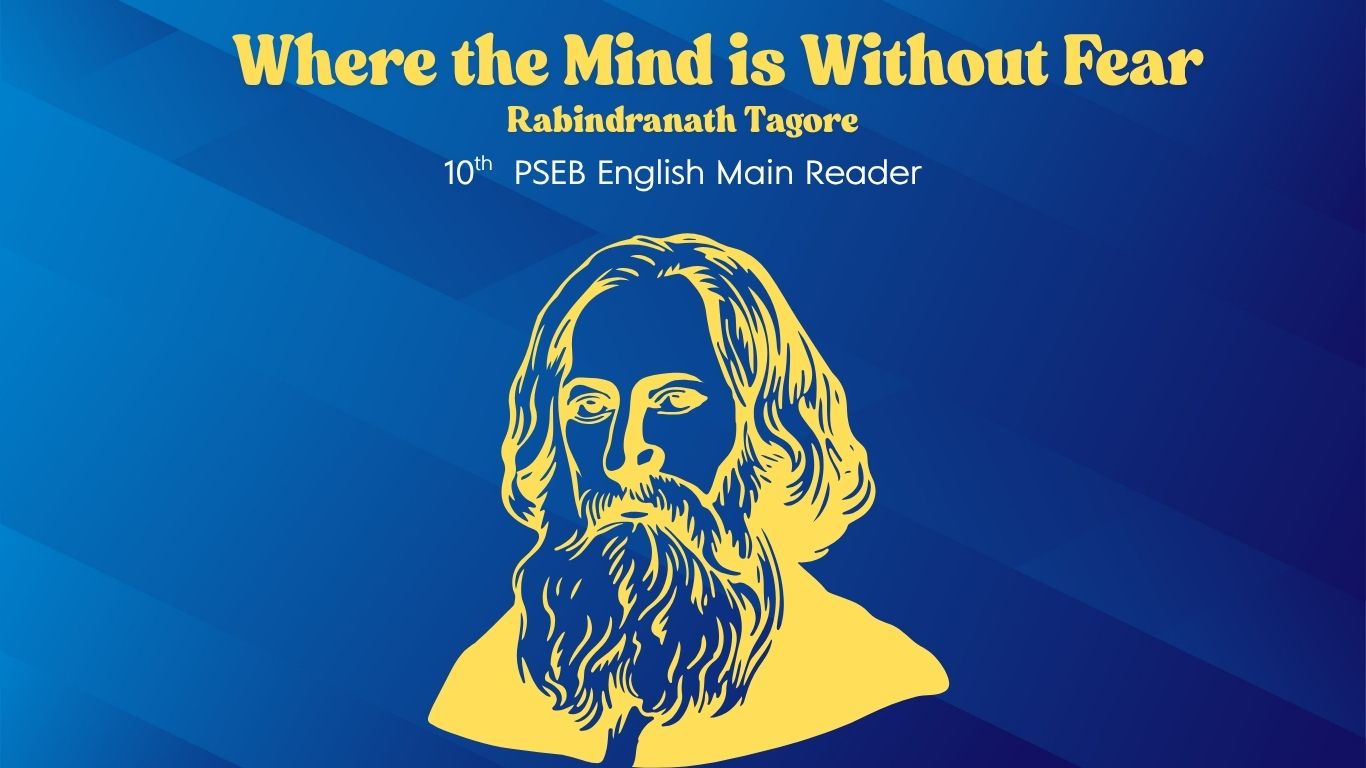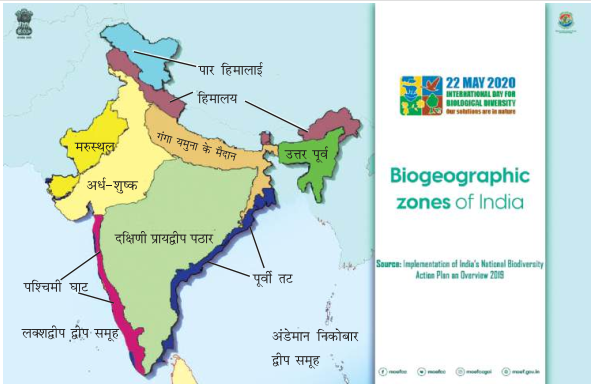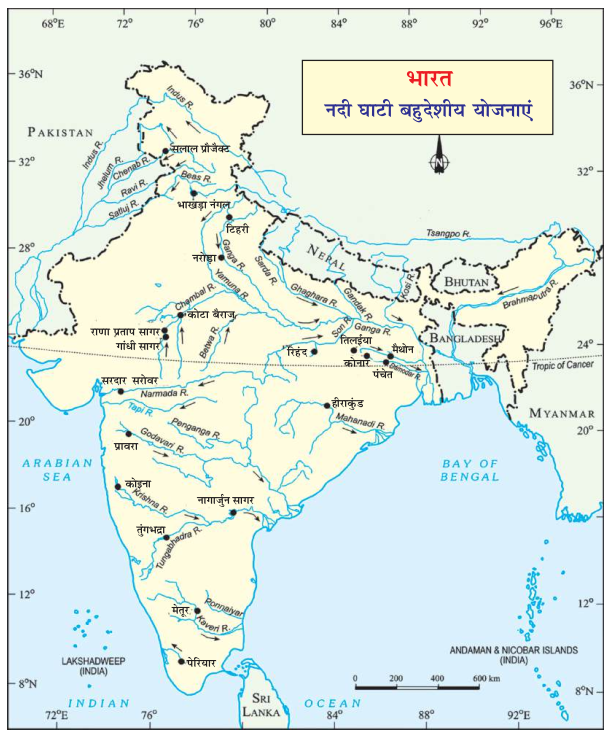Where the Mind is Without Fear
Where the mind is without fear and the head is held high;
Where knowledge is free;
Where the world has not been broken up into frag-ments by narrow domestic walls;
Where words come out from the depth of truth;
Where tireless striving stretches its arms towards perfection;
Where the clear stream of reason has not lost its way into the dreary desert sand of dead habit;
Where the mind is led forward by Thee into ever-widening thought and action—
Into that Heaven of freedom, my Father, let my country awake.
Discussion on Where the Mind is Without Fear
Summary of the Poem “Where the Mind is Without Fear”
Rabindranath Tagore’s “Where the Mind is Without Fear” is an earnest prayer and a vision for his motherland, India. The poet yearns for a nation where people can live without fear and with self-respect (“head is held high”). He desires a society where knowledge is accessible to all, unhindered by any restrictions. He dreams of a world united, not fragmented by narrow prejudices and divisions like caste, creed, or religion (“narrow domestic walls”).
Tagore envisions a country where people speak truthfully from their hearts, and where they constantly strive for excellence and perfection. He prays for a society guided by clear reason, not one lost in outdated, meaningless customs and traditions (“dreary desert sand of dead habit”). Finally, he asks God (“my Father”) to lead the minds of his countrymen towards progressively broader thoughts and actions, awakening his nation into a true “Heaven of freedom”—a state of intellectual, spiritual, and political liberation.
Hindi Translation of the Poem “Where the Mind is Without Fear”
जहां मन भय से मुक्त हो और मस्तक ऊंचा हो;
जहां ज्ञान स्वतंत्र हो;
जहां दुनिया संकीर्ण घरेलू दीवारों से टुकड़ों में न बंटी हो;
जहां शब्द सत्य की गहराई से निकलते हों;
जहां अथक प्रयास पूर्णता की ओर अपनी बाहें फैलाता हो;
जहां तर्क की स्पष्ट धारा मृत आदत की नीरस रेगिस्तानी रेत में अपना रास्ता न खो बैठी हो;
जहां मन तेरे द्वारा निरंतर विस्तृत होते विचार और कर्म की ओर अग्रसर हो—
स्वतंत्रता के उस स्वर्ग में, मेरे पिता, मेरा देश जागृत हो।
Answers to the Questions (Enjoying the Poem):
-
What is the central idea of the poem?
-
English: The central idea of the poem is the poet’s profound aspiration for a truly free and enlightened nation. He envisions a society characterized by fearlessness, dignity, free access to knowledge, unity beyond narrow divisions, truthfulness, a constant pursuit of perfection, rational thinking over blind habit, and ever-expanding intellectual and active engagement, all leading to a “Heaven of freedom.”
-
Hindi Question: कविता का केंद्रीय विचार क्या है?
-
Hindi Answer: कविता का केंद्रीय विचार कवि की एक सच्चे स्वतंत्र और प्रबुद्ध राष्ट्र के लिए गहन आकांक्षा है। वह एक ऐसे समाज की कल्पना करते हैं जो निर्भयता, गरिमा, ज्ञान तक मुफ्त पहुँच, संकीर्ण विभाजनों से परे एकता, सत्यवादिता, पूर्णता की निरंतर खोज, अंधी आदत पर तर्कसंगत सोच, और निरंतर विस्तृत बौद्धिक और सक्रिय जुड़ाव की विशेषता हो, जो सभी स्वतंत्रता के “स्वर्ग” की ओर ले जाए।
-
-
Write a summary of the poem.
-
(Please see the summary provided above the Hindi translation.)
-
-
What is the meaning of the line ‘where knowledge is free’?
-
English: The line ‘where knowledge is free’ means a state where education and information are accessible to everyone without any barriers, restrictions, or discrimination based on social status, wealth, caste, or creed. It implies a society that encourages learning and the open sharing of ideas.
-
Hindi Question: ‘जहां ज्ञान स्वतंत्र हो’ पंक्ति का क्या अर्थ है?
-
Hindi Answer: ‘जहां ज्ञान स्वतंत्र हो’ पंक्ति का अर्थ एक ऐसी स्थिति है जहां शिक्षा और सूचना सभी के लिए सामाजिक स्थिति, धन, जाति या पंथ के आधार पर बिना किसी बाधा, प्रतिबंध या भेदभाव के सुलभ हो। इसका तात्पर्य एक ऐसे समाज से है जो सीखने और विचारों के खुले आदान-प्रदान को प्रोत्साहित करता है।
-
-
Why is the world broken by narrow domestic walls? What can we do about it?
-
English: The world is broken by “narrow domestic walls” which refer to divisions created by prejudices based on religion, caste, creed, color, language, or region. These man-made barriers fragment humanity and hinder progress. To overcome this, we can promote education that fosters universal brotherhood, encourage inter-community dialogue and understanding, challenge discriminatory practices, and cultivate empathy and respect for all individuals, irrespective of their background.
-
Hindi Question: दुनिया संकीर्ण घरेलू दीवारों से क्यों टूटी हुई है? हम इसके बारे में क्या कर सकते हैं?
-
Hindi Answer: दुनिया “संकीर्ण घरेलू दीवारों” से टूटी हुई है जो धर्म, जाति, पंथ, रंग, भाषा या क्षेत्र के आधार पर पूर्वाग्रहों द्वारा निर्मित विभाजनों को संदर्भित करती हैं। ये मानव निर्मित बाधाएं मानवता को खंडित करती हैं और प्रगति में बाधा डालती हैं। इस पर काबू पाने के लिए, हम ऐसी शिक्षा को बढ़ावा दे सकते हैं जो सार्वभौमिक भाईचारे को बढ़ावा दे, अंतर-सामुदायिक संवाद और समझ को प्रोत्साहित करे, भेदभावपूर्ण प्रथाओं को चुनौती दे, और सभी व्यक्तियों के प्रति उनकी पृष्ठभूमि की परवाह किए बिना सहानुभूति और सम्मान विकसित करे।
-
-
What does the poet desire for his country?
-
English: The poet desires a country that embodies true freedom in all aspects:
-
Fearlessness and self-respect for its citizens.
-
Unrestricted access to knowledge for all.
-
Unity, free from divisive prejudices.
-
Truthfulness in thought and speech.
-
A continuous striving for perfection.
-
A society guided by reason, not blind tradition.
-
Minds that are constantly evolving towards broader thoughts and actions.
In essence, he desires his country to awaken into a “Heaven of freedom.”
-
-
Hindi Question: कवि अपने देश के लिए क्या चाहता है?
-
Hindi Answer: कवि एक ऐसे देश की कामना करता है जो सभी पहलुओं में सच्ची स्वतंत्रता का प्रतीक हो:
-
अपने नागरिकों के लिए निर्भयता और स्वाभिमान।
-
सभी के लिए ज्ञान तक अप्रतिबंधित पहुँच।
-
विभाजनकारी पूर्वाग्रहों से मुक्त एकता।
-
विचार और वाणी में सत्यता।
-
पूर्णता के लिए निरंतर प्रयास।
-
एक ऐसा समाज जो तर्क से निर्देशित हो, अंधी परंपरा से नहीं।
-
ऐसे मन जो निरंतर व्यापक विचारों और कार्यों की ओर विकसित हो रहे हों।
संक्षेप में, वह चाहता है कि उसका देश स्वतंत्रता के “स्वर्ग” में जागृत हो।
-
-
-
Read some other poems by R.N. Tagore. How do you find these?
-
English: This is a subjective question requiring personal reflection. Other poems by Tagore often explore themes of spirituality, nature, love, humanism, patriotism, and the complexities of life. Readers might find them profound, lyrical, thought-provoking, deeply connected to Indian culture and philosophy, and often imbued with a sense of hope and beauty. Some might find his language rich and evocative, while others might connect with the universal emotions he portrays.
-
Hindi Question: आर.एन. टैगोर की कुछ अन्य कविताएँ पढ़ें। आपको ये कैसी लगती हैं?
-
Hindi Answer: यह एक व्यक्तिपरक प्रश्न है जिसके लिए व्यक्तिगत चिंतन की आवश्यकता है। टैगोर की अन्य कविताएँ अक्सर आध्यात्मिकता, प्रकृति, प्रेम, मानवतावाद, देशभक्ति और जीवन की जटिलताओं जैसे विषयों का पता लगाती हैं। पाठक उन्हें गहरा, गीतात्मक, विचारोत्तेजक, भारतीय संस्कृति और दर्शन से गहराई से जुड़ा हुआ, और अक्सर आशा और सुंदरता की भावना से ओतप्रोत पा सकते हैं। कुछ को उनकी भाषा समृद्ध और विचारोत्तेजक लग सकती है, जबकि अन्य उनके द्वारा चित्रित सार्वभौमिक भावनाओं से जुड़ सकते हैं।
-



